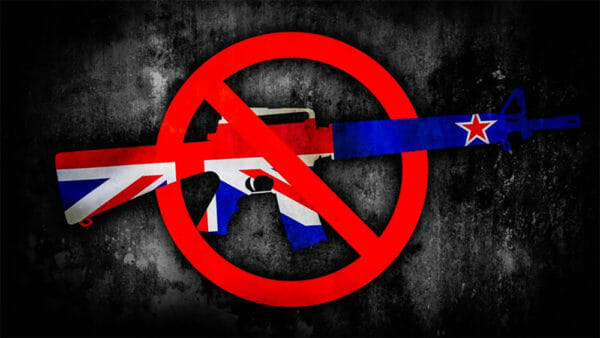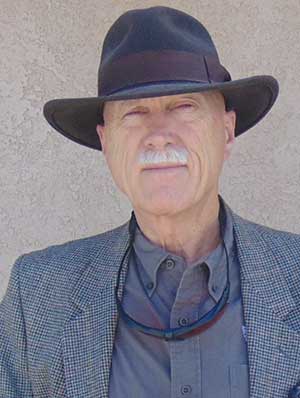
U.S.A. –-(Ammoland.com)- New Zealand’s Prime Minister has proposed extreme new controls on gun ownership for the country. They are explicitly designed to move gun ownership in New Zealand from a right to a privilege. The Prime Minister is attempting to follow the Australian playbook on imposing extreme restrictions on gun ownership. From stuff.co.nz:
Firearm owners will have to register their guns amid the largest changes to gun laws in decades.
Prime Minister Jacinda Ardern announced details of the firearm law overhaul on Monday, saying it would come with a message ingrained in law: firearm ownership is a privilege and not a right.
Ardern said New Zealand had reached a “new normal around firearms” after the March 15 terror attack.
The Government is seeking cross-party support the latest reform effort, but already resistance to the a firearm register – a contentious measure linking gun serial numbers to licence holders – is fomenting.
In a statement that strains credulity, the P.M. claimed the piecemeal implementation of the extreme measures was a deliberate strategy, rather than a lame attempt to add restrictions as the unworkabiliy of the ban became obvious.
On Monday, Prime Minister Jacinda Ardern said the Government wanted to make sure it got the buyback fully bedded in and the collection regime under way before announcing a second tranche of gun laws.
Nik Green, the disarmament advocate who was instrumental in pushing for restrictions on gun owners, called for a further restrictions and a complete gun registry months after the initial legislation, when resistance to the extreme and rushed legislation started to surface.
Green called for registration of all firearms and reducing the terms of a firearms license. The group he founded said they had no problem with people owning firearms as long as they were not semi-automatic. From scoop.co.nz:
“Hunting and other shooting sports have a long history in New Zealand. We support properly vetted people being able to own registered rifles and shotguns, so long as those guns are not semi-automatic,” says co-founder Philippa Yasbek.
Then, when gun owners made preparations to convert semi-automatics to manually operated repeaters, Green opposed that as insufficient.
What has happened in New Zealand seems clear to those who have studied the push for disarming populations. A mass murder with firearms was perpetrated, promoted by media contagion and/or in response to governmental policies. In New Zealand, it was an act of political terrorism.
The government in power, rather than seeking wise and rational lessons from the incident, leading to deliberation with a normal legislative process, uses the event to push for a pet policy of disarming the population.
In Australia, a plan was in place, and legislation had been prepared to take maximum advantage of the media push and emotional momentum, before logic, reason, and counter-arguments could be marshaled against the emotional momentum.
An interview with Peter Collins, who was the leader of the opposition coalition of Liberals and Nationalists in New South Wales, when the 1997 Australian legislation was passed, confirmed this scenario. Just nine years previously, the liberals wondered why Labor would push for restrictions on gun ownership. It was a clear, losing proposition. Then the Port Arthur massacre was committed.
Former Member of Parliament in Australia, Peter Collins, said that made all the difference. None of the politicians in power saw a downside. Prime Minister John Howard saw this as the opportunity to change the culture of Australia. They had to act fast, before the opportunity was lost.
The big effort was to get it passed while emotions were high, “to cover as much as possible, with this legislation, realizing the momentum would never be greater”.
The most important change, he said, was to move from the expectation an Australian had a right to a gun, to the presumption they did not.
The expectation of a right to arms was founded in the rights of Englishmen in their common law. It is what the United States Second Amendment was based on.
In Australia, no opposition was allowed in the media, not by government decree, but by concensus of the media conglomerates.
In New Zealand, there is an official government censor that works hard to prevent New Zealanders from knowing that the environmental leftist who committed the murders planned for his act to spark more gun control laws in New Zealand and in the United States. He chose to use semi-automatic rifles precisely for that reason.
His manifesto has been banned in New Zealand. John Lott, a prestigious American academic who has been critical of restrictive gun control schemes, was banned from twitter when he referenced that fact.
In New Zealand, the socialist Prime Minister rushed to push legislation through, but it was not as sweeping as the Australian ban. New Zealand has at least twice as many gun owners per capita as Australia. The legislation did not explicitly eliminate the right to have a gun, as the Australian legislation did. It did not require registration of all guns. It did not ban slingshots and crossbows and place airguns in the same category as shotguns.
Now, the New Zealand government has discovered that mass confiscation requires a registration list. The P.M. wants registration of all guns, a shortened registration period, and the explicit pronouncement that gun ownership is not a right, but a privilege that can be revoked by the government at any time, are proposed. She wants to ban hunters from bring their own guns to Australia, although hunters bringing guns has not been involved in any incidents. Banning hunters from bringing guns is a clear push to punish the gun culture, rather than to prevent terrorism. It is an economic blow to New Zealand’s hunting industry. It is hard to make a case that banning hunting guns stops terrorism.
These extreme restrictions would probably have passed in the emotional media push right after the terrorist attack. They passed in Australia. They may still pass.
None of the new restrictions have been submitted as actual legislation. Very likely, the Prime Minister is gauging the opposition, trying to determine how many more restrictions she can push through.
The new restrictions will be subject to a bit more discussion, debate, and rational deliberation. Some of New Zealand media are allowing some opposition voices to be heard.
Official censorship continues, however. It seems unlikely most New Zealand citizens know their government is acting exactly as the terrorist planned for it to act.
About Dean Weingarten:
Dean Weingarten has been a peace officer, a military officer, was on the University of Wisconsin Pistol Team for four years, and was first certified to teach firearms safety in 1973. He taught the Arizona concealed carry course for fifteen years until the goal of constitutional carry was attained. He has degrees in meteorology and mining engineering, and recently retired from the Department of Defense after a 30 year career in Army Research, Development, Testing, and Evaluation.
